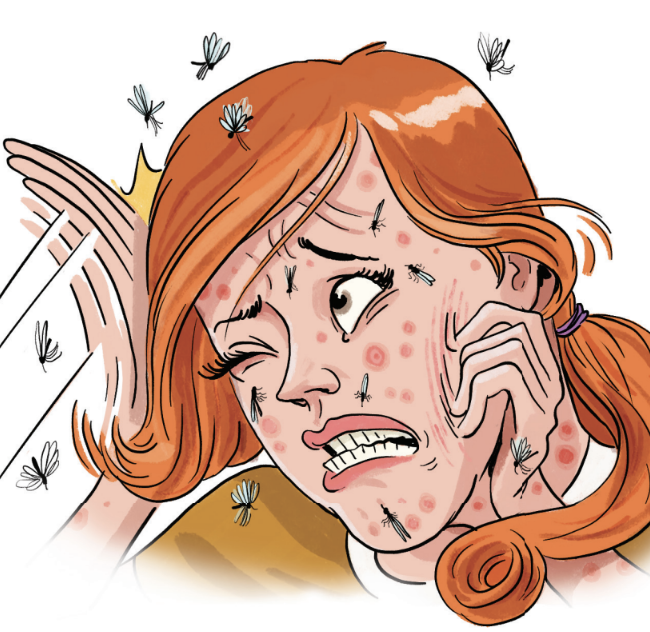Is Hiking Good for Your Health? We Got an Expert’s Opinion.
This article originally appeared on Backpacker
Curiosity is the root of adventure. You let it lead you to the next switchback, the next view, the next trailhead. Likewise, it probably drives you to ask questions--about everything from the color of the sky to why your knees are killing you. We gathered the most burning queries and spent weeks scouring textbooks, deciphering diagrams, and grilling experts for the answers. The result? Dozens of factoids that will impress even your most well-read hiking partner and leave you with a new appreciation for our world. (Here, we answer questions about physiology. Check out our deep dives into gear and nature.)
Is thru-hiking bad for me?
Depends on your perspective. Most thru-hikers gain leg muscle (usually good) and temporarily lose weight (sometimes good). A case study found that one hiker's arteries narrowed during his thru-hike (not good), perhaps due to dietary changes. Many thru-hikers end hikes early due to injury (bad), and some develop chronic joint pain (definitely bad). But substantive research is limited. The only real evidence of negative health impacts? Cavities. On a thru-hike, "you're more likely to be eating something all the time. Teeth need time to recover from sugar," explains Karel Sabbe, a dentist and record-setting thru-hiker. "My oral hygiene during the PCT record attempt was the worst. I was too tired to brush my teeth and was probably eating a half a pound of candy and drinking at least a gallon of a sugar drink a day."
Fortunately, Sabbe says, you will usually survive a week or so of sub-par brushing without cavities. But don't push it: "The impact of [chronically poor oral hygiene] is huge and to this date still too much underestimated," Sabbe says. "It creates a constant inflammation and your body is constantly fighting it." Not something you want to worry about on the trail.
Why don’t I ever poop on backpacking trips?
"That's a fiber and hydration problem," says Aaron Owens Mayhew, Registered Dietician and Founder of Backcountry Foodie, a recipe and meal-planning resource for backpackers. "Hikers tend to eat more processed foods, which are naturally lower in fiber. You likely are eating more fiber and drinking more water at home, which is what's keeping you more regulated."
How can I get rid of lactic acid faster?
"Lactic acid actually clears the body rather quickly," says Denver-based physical therapist Jamie Bovay. "Besides, soreness isn't caused by the lactic acid or its byproduct, lactate, but because of the strain to the muscles themselves."
While you can't really reduce the amount of lactic acid (or the hundreds of other byproducts) your body produces during exercise, you can reduce that "burning" feeling by building up a tolerance, Bovay says. The trick? Regular physical training. (Sorry--there are no shortcuts here.)
How do blisters actually form?
Squeamish? This is your last warning. When your foot hits the ground, your outer layers of skin--which stick to your shoe via friction--move one way, and your inner layers move the other. This creates shear stress, which pulls one layer of skin away from the other. The resulting rift gets pressure-filled with a clear bodily fluid called serum. The result: A cushioned pocket that, left unpopped, protects the inner skin layer as it recovers.

Why are some people more prone to mosquito bites than others?
It's largely genetic, says G. Mandela Fernandez-Grandon, a UK-based entomologist. Skeeters are super sensitive to smells, and different people have different skin-dwelling bacteria that produce those smells. Mosquitoes also tend to be more attracted to men than women because men have a higher surface temperature and more skin surface area. Fernandez-Grandon's advice for mosquito magnets? "Travel with a friend who's even more attractive to mosquitoes than you," he laughs.
Does the lightning stance really prevent my body from channeling electricity?
That's a hard nope. The one-time theory was that if a nearby lightning strike was traveling through the ground, keeping your feet together would prevent the electricity from arcing up through one leg and down the other, zapping your heart on the way. The truth? Pigeon, lighting stance, shavasana--get into any pose you want, but a close-enough strike cans till find its way through your body. Instead, experts recommend moving to find shelter and avoiding tall objects, which can occasionally produce upward-reaching streamers of electricity during electrical storms, attracting nearby strikes.
Do electrolytes actually do anything?
Electrolytes are dissolved mineral ions--usually sodium, magnesium, and potassium--that your cells use to send chemical signals and keep fluid levels balanced. So yeah, they're pretty necessary. As for electrolyte drinks and supplements? Not so much. Most research indicates that you get most minerals from the food you eat; salty snacks and plenty of water are usually enough to replenish what you lose through sweat.
For exclusive access to all of our fitness, gear, adventure, and travel stories, plus discounts on trips, events, and gear, sign up for Outside+ today.

